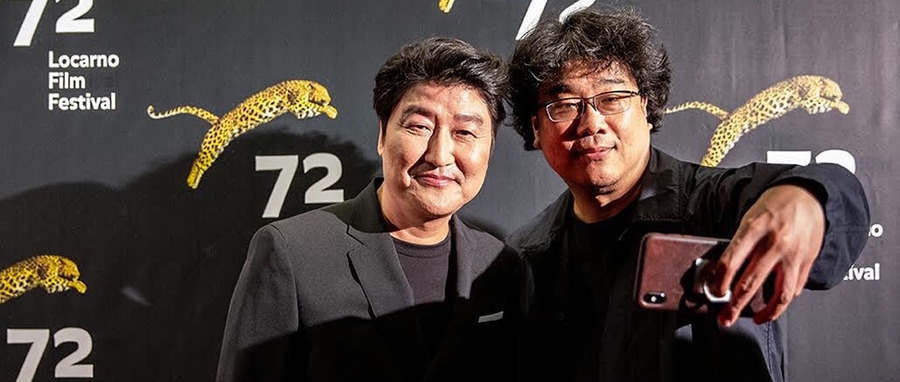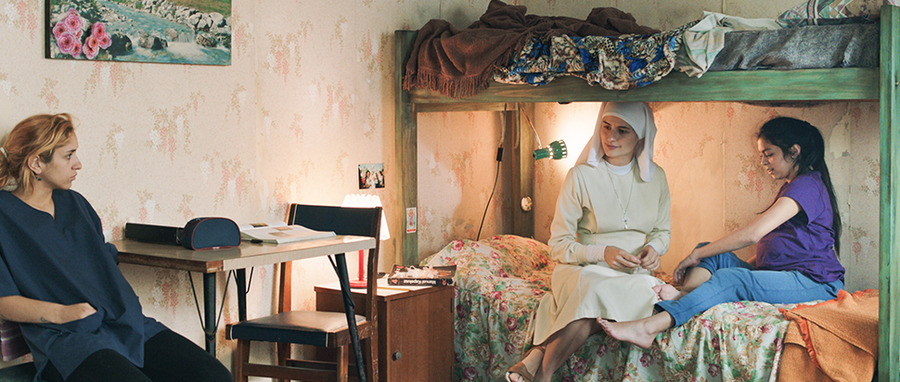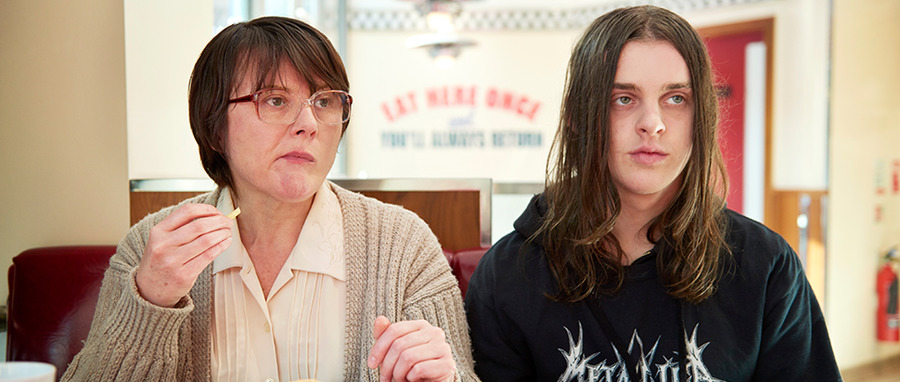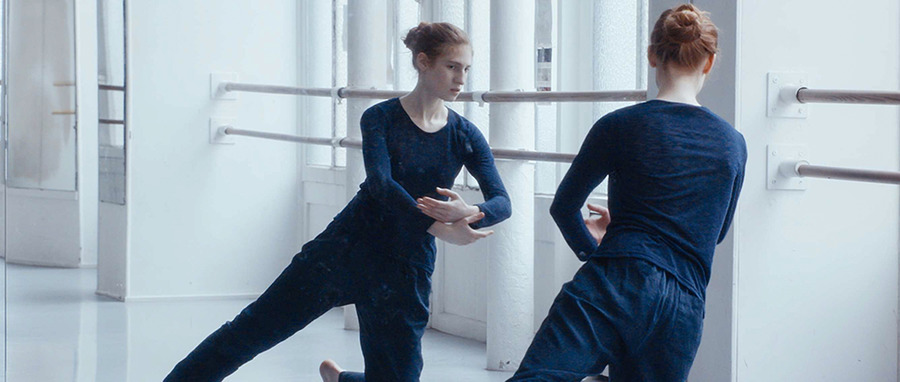Locarno Film Festival 2019: The Skinny's Highlights
This year's edition of the Swiss festival was delivered under the leadership of new artistic director Lili Hinstin, with world premieres of new films from Pedro Costa and Simon Bird, alongside career awards for the likes of Song Kang-ho and John Waters
Founded in 1946, Switzerland’s Locarno Festival is one of the world’s longest-running film festivals, known for its arthouse-favouring programming, extensive retrospectives and nightly open-air screenings in the Piazza Grande, which can seat 8000 spectators. The latter is by no means the only venue, but it’s the one most associated with the festival. Having attended for the first time last year, we often recall the memory of seeing Ethan Hawke’s directorial effort Blaze amid a rare torrential downpour in the otherwise scorching town.
Taking place by Lake Maggiore at the southern foot of the Swiss Alps, Locarno can be quite pricey to attend because almost none of the food on offer is cheap, but the very welcoming atmosphere makes up for a lot. The intermingling of public, industry and press attendees every night, particularly at select pubs open until 3am, is unlike any other festival we’ve experienced. Where else might you see Béla Tarr exit an otherwise amicable-seeming conversation with Pedro Costa with a “fuck off” before getting in a car? Hopefully that’s how he says goodbye to everyone.
Locarno's Black cinema retrospective and award-winners
After a string of retrospectives focused on early Hollywood studio directors like Leo McCarey and Jacques Tourneur, this year’s ambitious Black Light focus on black cinema spread the love all around the world to multiple artists and filmmaking styles. Curated by Greg de Cuir Jr, the festival’s statement on the retrospective when it was first announced included the following description: “We cannot speak of one single Africa, and likewise, we cannot speak of one Black cinema. Reality is more complex. The Locarno72 Retrospective intends to go beyond the concept of Black as identity or social issue to explore the imagery used by filmmakers who have tackled this question – historical and political – at different times and in different places.”
The nearly 50-film line-up was revelatory: from Blaxploitation milestones, a Sidney Poitier noir and early Spike Lee to experimental silent features and the first feature directed by a woman of African descent in the Americas. It was often difficult to resist seeing more from the retrospective in favour of the premiering films. Personal Black Light highlights included first-time watches of Kasi Lemmons’ extraordinary Eve’s Bayou (1997), Robert Wise’s Harry Belafonte-led thriller Odds Against Tomorrow (1959), and the Paul Robeson-starring British silent feature Borderline (1930), all screened from 35mm prints.
Locarno also tends to screen past career highlights by the figures receiving achievement awards at the festival. John Waters was in town to receive the Pardo d’onore Manor prize, meaning that a selection of both his best-loved and most derided directorial efforts were screened from release prints or from new restorations. If ejaculate flying at the screen to take you into the end credits of A Dirty Shame (2004) really is the final shot of Waters’ career as a director, it’s certainly a fitting one.
Elsewhere, Hilary Swank received the Leopard Club Award and Korean star Song Kang-ho became the first Asian actor to receive Locarno’s Excellence Award. We missed Swank’s short appearance but caught the affable Song multiple times around the festival, including when he introduced a screening of Kim Jee-woon’s hilarious The Foul King (2000), in which he plays an office slave who starts a side career as a masked wrestler. Song’s frequent collaborator Bong Joon-ho (on Memories of Murder, The Host and Snowpiercer) was around, too, both to co-introduce a special screening of their Palme d’Or winner, Parasite, and participate in a talk with his regular leading man. An interview with Bong in the festival’s own daily magazine indicated he came along to hang out with his buddy and basically just be his hype man, which is adorable.
Locarno: Review round-up
But what of those new films? If it seems like we’ve been stalling on discussing this edition’s world or international premieres, let it be known that The Skinny did not see anything actively terrible this year. But while they were plenty of films we liked, there was nothing we loved with quite the same level of fervour as a batch of films that knocked us out last year: Dominga Sotomayor’s Too Late to Die Young, Richard Billingham’s Ray & Liz, Eva Trobisch’s All Good, and Philippe Lesage’s Genesis.
That all said, our highlights from the festival’s various strands are all still worth catching as they tour future festivals or, hopefully, get adequate UK distribution. One that is definitely coming your way in 2020 is Days of the Bagnold Summer (★★★★), the feature directorial debut of actor Simon Bird (The Inbetweeners). An adaptation of Joff Winterhart’s graphic novel of the same name, it’s a very sweet comedy about a mother and son both coming out of their respective shells when forced to spend a long, dull summer together, with endearing performances from Monica Dolan and Earl “son of Nick” Cave. Noticeably influenced by Hal Ashby, Bird’s film – a rare modern British comedy with actual thought put into its compositions – also has a touch of early Bill Forsyth about it.
Elsewhere on the comedy side of things, Greener Grass (★★★★), an American feature that first premiered at Sundance, proved divisive among attendees. We found this surreal suburban tale from Jocelyn DeBoer and Dawn Luebbe – who wrote, directed and star in the film – an unpredictable treat somewhat in the vein of the better efforts of the Adult Swim comedy imprint. For a taste, imagine if John Waters made Desperate Housewives. It’s a shame that it screened the week before Waters was around.
Among the titles competing for the top Golden Leopard prize in the International Competition were new films from the likes of Kôji Fukada and Ulrich Köhler. We were particularly taken with the Argentine-Italian co-production Maternal (★★★★), the fiction narrative debut of writer-director Maura Delpero. It’s a moving and surprisingly amusing portrait of three women in an Italian religious centre in Buenos Aires: two teenage mothers, including one expecting another child, and a novitiate who ends up taking care of the other’s infant daughter after she seemingly abandons her.
The bond between mother and child also forms the basis of Damien Manivel’s Isadora’s Children (★★★★), which explores how the lives of three sets of women are touched by ‘Mother’, a dance created by the famous Isadora Duncan as an expression of her grief over the loss of her very young children in a drowning accident. Although we may have said we didn’t fall in love with many of the new films at Locarno this year, we came the closest with Manivel’s enchanting depiction of transcendence through empathy and the arts.
The aforementioned Pedro Costa won the festival’s top Golden Leopard prize for Vitalina Varela (★★★★), his latest otherworldly foray into the lives of impoverished Cape Verdean immigrants in Portugal, directly following 2014’s Horse Money. By far the buzziest title from the festival, we were as hypnotised as most by Costa’s vision and Best Actress winner Vitalina Varela herself, though fully acknowledge that making it our last film of the festival before heading straight to the airport on very little sleep didn’t make for the most ideal viewing conditions for such a layered piece of phantasmagoria. One to revisit as soon as possible, should British film festivals and distributors allow it.
Locarno Festival ran 7-17 Aug. More details at www.locarnofestival.ch



